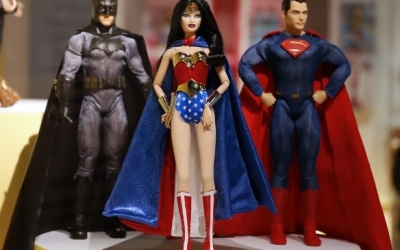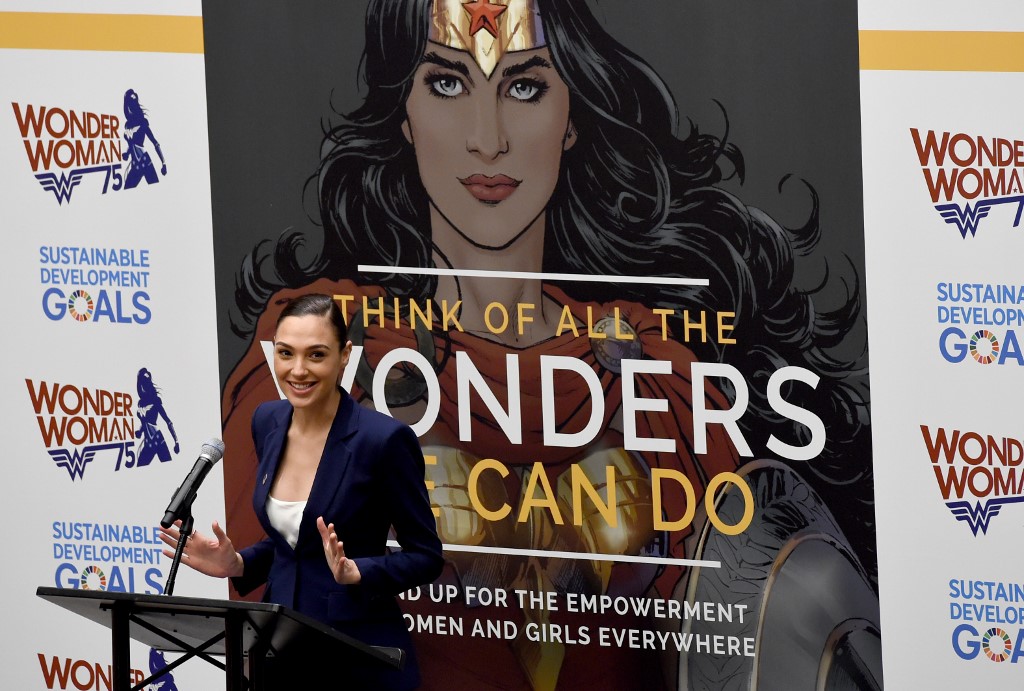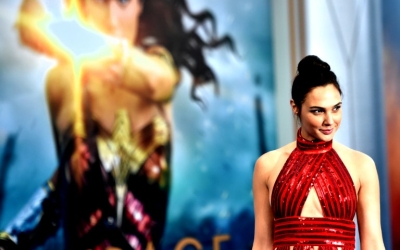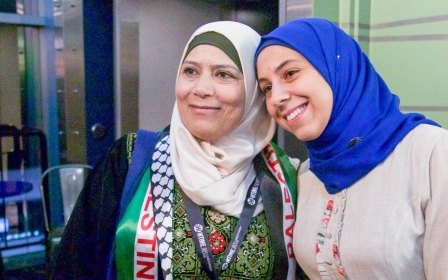Gal Gadot as Cleopatra: Hollywood whitewashing in the 'woke' era
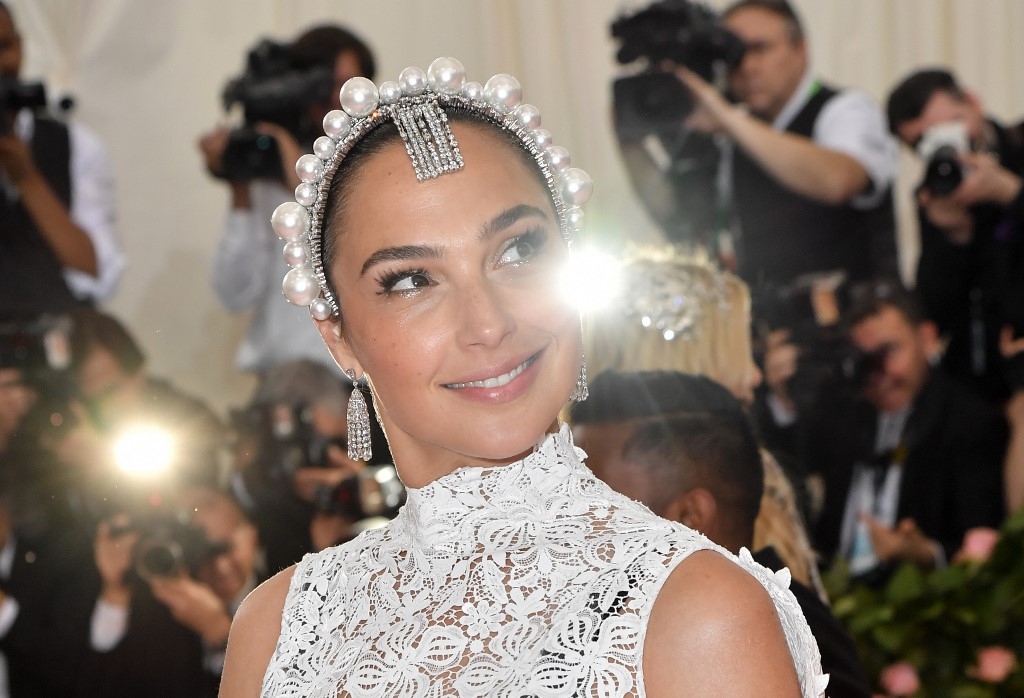
On 11 October, Israeli actress Gal Gadot tweeted an oil painting of Cleopatra by 19th-century Orientalist artist Frederick Arthur Bridgman of Tuskegee, Alabama. Accompanying the photo was the announcement that Gadot would be teaming up with director Patty Jenkins and screenwriter Laeta Kalogridis to bring the iconic Queen of Egypt “to the big screen in a way she’s never been seen before”.
The novelty of the approach, in Gadot’s view, is that Cleopatra’s story will be told “for the first time through women’s eyes, both behind and in front of the camera”.
As if that weren’t already the most exciting news to hit the world of Orientalist showbiz since the time Elizabeth Taylor played Cleopatra in 1963, Gadot appended another tweet specifying: “And we are especially thrilled to be announcing this on #InternationalDayoftheGirl. We hope women and girls all around the world, who aspire to tell stories will never give up on their dreams and will make their voices heard, by and for other women.”
Love for the Israeli army
It’s always moving, of course, when the ultra-rich emit platitudes about female voices and dreams, notwithstanding the fact that their own ultra-richness is entirely dependent on the general misery of the masses - and especially the female masses.
It’s even more moving when the hashtag track record of the person tweeting about #InternationalDayoftheGirl also includes things like “#loveidf” - an homage to the Israeli military. This particular expression of love took place in a July 2014 Facebook post by Gadot, in the midst of Israel’s assault on the Gaza Strip. In a matter of 50 days, the Israeli army eliminated some 2,251 Palestinians in Gaza, among them 551 children and 299 women. Hard to make your voice heard if you’re dead.
Obviously, military destruction by predatory states is not remotely progressive, whether or not women are involved
Born in the city of Petah Tikva in 1985, Gadot was crowned Miss Israel in 2004 and served as a soldier in the Israeli military during the loveable army’s 34-day assault on Lebanon in the summer of 2006, which killed approximately 1,200 people, the majority of them civilians.
In 2007, she participated in a Maxim magazine photo shoot, the objective of which she later described in an interview with Forward: “In cooperation with Maxim, to bring more tourism to Israel, [the Israeli Ministry of Tourism] was going to start this huge campaign using pictures of girls in the military in bikinis.” Who said ethnic cleansing and mass slaughter aren’t sexy?
According to Maxim, Gadot’s “Women of Israel Defence Forces” photo shoot fame was largely to thank for the ensuing result: "a part in Fast and Furious, which then led her to roles in The Beautiful Life and Fast Five”. According to Gadot in the Forward interview, Fast and Furious director Justin Lin “really liked that I was in the Israeli military, and he wanted to use my knowledge of weapons”.
'One of the guys'
In the same interview, she describes her movie character, Gisele, as follows: “It was really important to make her one of the guys. She’s a woman and very feminine, but at the same time has to be strong and tough and equal to them.”
A similar character description could, perhaps, be applied to the whole “Women of Israel Defence Forces” concept itself, with the Israeli army’s near-universal draft and co-ed nature helping to endow Israel’s apartheid system with a veneer of equality and justice (except that the men don’t have to wear bikinis).
Another fitting characterisation, of course, might be “equal opportunity killing” - also on display when, for example, New York Times columnist Thomas Friedman exults over the existence of female American F-15 bombardiers in Afghanistan and the idea that some members of the Taliban “have just been killed by a girl”.
Obviously, military destruction by predatory states is not remotely progressive, whether or not women are involved. Nor does being a famous female millionaire in a world of patriarchal capitalism constitute feminism - and yet, that’s pretty much exactly what Gadot is up to.
Her image and marketability received a considerable boost from her starring role in Wonder Woman in 2017 - also directed by Jenkins - which provided endless opportunities for obsequious headlines such as: “A Real-Life Wonder Woman: 35 Fascinating Facts About Gal Gadot.”
Reinforcing misogynistic fears
But as diaspora Palestinian scholar and political commentator Nada Elia asked at the time: “Would Wonder Woman have been as ‘wonderful’ were she also not a glamorous, attractive, tall, slender European young woman?” (The “European” reference is to Gadot’s undisputed ancestry, although various opportunists have taken it upon themselves to argue that she somehow isn’t white.)
Emphasising that feminism is “not about having a bigger piece of a toxic pie, it’s about changing the ingredients of the pie”, Elia went on to document the actual counter-feminist orientation of the off-the-charts blockbuster - such as Gadot’s reinforcement of “mainstream misogynistic fears of feminism when she explained that she is grateful Jenkins chose not to portray Wonder Woman as a ‘ball buster’ but rather as ‘charming and warm.’”
As Gadot and Jenkins now team up with Paramount Pictures for the new Cleopatra production - ostensibly to tell her story “through women’s eyes” - the media have once again taken the ball and run with it, with the Deadline Hollywood website reporting that Gadot would soon be “wearing the crown of a real wonder woman of history”.
Also collaborating in production of the film is Pilot Wave Motion Pictures, a company founded by none other than Gadot and her husband Jaron Varsano, a real estate developer. In 2015, Varsano reportedly sold his Varsano Hotel in Tel Aviv for $26m to Russian tycoon Roman Abramovich, the owner of Chelsea Football Club and funder of illegal Israeli settlement projects (how’s that for real estate development?).
And what do you know: Gadot’s husband is a feminist, too! At least according to Cosmopolitan magazine and other swoon-prone outlets. Alleged case in point: on International Women’s Day in 2018, he took to Instagram to praise his “strong independent” wife and their relationship “based on equality and mutual respect”. Hashtags included “#equality” and “#feminism”, although an additional hashtag along the lines of “#exceptforPalestinians” might have worked well.
Useful distraction
Anyway, luckily for Gadot and Varsano, faux feminism sells. It’s also an extremely useful distraction from the reality that casting a former Miss Israel and gung-ho Israeli army soldier as the most iconic Egyptian woman ever is all kinds of wrong.
On Twitter, journalist Sameera Khan reprimanded Gadot: “Your country steals Arab land & you’re stealing their movie roles” - a far more valid point, to be sure, than the other part of Khan’s tweet: “Which Hollywood dumbass thought it would be a good idea to cast an Israeli actress as Cleopatra (a very bland looking one) instead of a stunning Arab actress like Nadine Njeim?”
Gadot's roles in life and on-screen help empower an Israeli narrative that is directly responsible for much of the drama and suffering of mankind and womankind in the region
After all, the issue shouldn’t be reduced to one of perceived female beauty (which doesn’t do much for feminism either). The Deadline Hollywood report states that the film itself was Gadot’s own idea, but the vileness of the arrangement has to do with the fact that, in the ongoing context of Israeli brutality and dispossession, Gadot’s effective usurpation of the role of Cleopatra serves a fundamentally political purpose.
Indeed, it highlights the colonisation and appropriation of history at which the state of Israel so excels. Gadot’s embodiment of a militant Orientalism that is at once glamorous and upbeat furthermore means that, to the considerable benefit of Israel’s normalisation campaign, more subtly pernicious propaganda will soon be coming to a theatre near you.
'Beloved ambassador'
As for the accusations that Gadot is literally “whitewashing” Cleopatra, we naturally can’t be sure of the Egyptian ruler’s precise skin colour. We can, however, be sure of Gadot’s services in terms of whitewashing Zionism. In 2017, Israeli President Reuven Rivlin hailed the actress as a “true and beloved ambassador” for Israel, and in 2018, Time Magazine listed her as one of the 100 most influential people in the world.
The HonestReporting website, which purports to “defend … Israel from media bias”, celebrates Gadot as “one of Israel’s greatest exports”, a beauty queen-turned-actress who “uses her global platform to wear that crown with pride in a bid to stave off the attempts of the Boycott Divestment and Sanctions movement to infiltrate the culture sector”.
Of course, Hollywood’s symbiosis with imperialism, Zionism and capitalism is no secret, and whitewashing in the film industry is nothing new; just think of silver-screen glorification of US militarism, or that time a Hollywood executive suggested that Julia Roberts play Harriet Tubman. But, via the likes of supposedly female-empowering Gadot, the nefariousness is being repackaged for the “woke” era.
In its mission statement, Gadot and Varsano’s Pilot Wave company says it “believes in cinematic creativity for growing a new sense of belief in the drama of mankind”. The statement continues: “Our productions recharge people with respect towards their own role in life, and empower their personal narrative within the fabric of community.”
But as Gadot’s roles in life and on-screen help empower an Israeli narrative that is directly responsible for much of the drama and suffering of mankind and womankind in the region, the only semi-respectable option would be to scrap the whole production altogether.
The views expressed in this article belong to the author and do not necessarily reflect the editorial policy of Middle East Eye.
Middle East Eye propose une couverture et une analyse indépendantes et incomparables du Moyen-Orient, de l’Afrique du Nord et d’autres régions du monde. Pour en savoir plus sur la reprise de ce contenu et les frais qui s’appliquent, veuillez remplir ce formulaire [en anglais]. Pour en savoir plus sur MEE, cliquez ici [en anglais].



